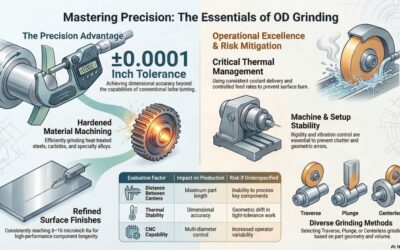Healthcare strikes have become increasingly common across Pennsylvania, with unions and healthcare workers calling attention to understaffing, wage disparities, and unsafe working conditions. Recent data indicates that Pennsylvania experienced several high-profile healthcare strikes in 2023, particularly among nursing homes and hospital systems. According to the Pennsylvania Department of Labor and Industry, strike notices increased by 15% from 2022 to 2023, primarily in the healthcare sector.
The Rise of Healthcare Strikes in Pennsylvania: A Local Perspective
Pennsylvania has become a focal point for healthcare labor disputes, particularly due to the unique challenges the state faces in balancing urban and rural healthcare needs. Key factors contributing to the rise in healthcare strikes across the state include:
- Staffing Shortages and Burnout: Pennsylvania’s healthcare system has been significantly impacted by a shortage of healthcare professionals, especially in rural areas. The Pennsylvania Health Care Cost Containment Council reported that, as of mid-2023, over 70% of healthcare facilities in the state were facing critical staffing shortages. This shortage has led to increased patient-to-staff ratios, pushing healthcare workers to demand better staffing ratios through strikes.
- Wage Disparities: In 2023, data from the Bureau of Labor Statistics (BLS) indicated that healthcare workers in Pennsylvania earn significantly less than their counterparts in neighboring states like New York and New Jersey. Strikes in facilities like Lower Bucks Hospital and several nursing homes were driven by wage disparities, with workers demanding higher pay to reflect their increased responsibilities and the high cost of living in Pennsylvania’s metropolitan areas.
- Union Activity and Advocacy: Pennsylvania is home to strong healthcare unions, including the Service Employees International Union (SEIU) and the Pennsylvania Association of Staff Nurses and Allied Professionals (PASNAP). These unions have been instrumental in organizing strikes to address staffing shortages and advocate for safer working conditions. The SEIU in Pennsylvania, representing thousands of healthcare workers, noted a 30% increase in strike votes from 2022 to 2023.
Impact of Strikes on Healthcare Providers in Pennsylvania
For healthcare employers in Pennsylvania, the impact of strikes can be profound:
- Disruptions in Patient Care: Data from the Pennsylvania Health Care Association shows that patient care was disrupted in more than 50 healthcare facilities in 2023 due to strikes. In rural areas, where healthcare access is already limited, this disruption can have devastating effects on communities, particularly for elderly populations and those requiring specialized care.
- Increased Financial Strain: According to the Pennsylvania Health Care Cost Containment Council, labor strikes cost healthcare facilities an estimated $50 million in 2023 due to lost revenue, the cost of temporary staff, and legal fees associated with labor disputes. This represents a 12% increase from 2022, signaling that labor disputes are becoming a growing financial concern for employers.
Why Strike Staffing is Critical for Pennsylvania Healthcare Employers
Given these challenges, Pennsylvania healthcare employers are increasingly turning to strike staffing agencies to maintain operational continuity. Here are some critical reasons why strike staffing has become a key part of healthcare management in the state:
1. Continuity of Care During Labor Disputes
Strike staffing agencies play a vital role in ensuring continuity of care during healthcare strikes. According to the Pennsylvania Department of Health, 40% of healthcare facilities that experienced strikes in 2023 utilized strike staffing agencies to maintain essential services. These agencies provide temporary licensed professionals who can quickly integrate into healthcare teams, ensuring that patient care remains uninterrupted.
2. Rapid Deployment of Skilled Healthcare Professionals
Pennsylvania’s healthcare system relies heavily on rapid deployment of skilled professionals during labor disputes. Strike staffing agencies in the state are equipped to deploy registered nurses, licensed practical nurses, and other healthcare workers within 24 to 48 hours, ensuring that facilities can continue to operate smoothly. The Pennsylvania Department of Labor reported that in 2023, more than 5,000 temporary healthcare workers were deployed to cover striking positions across the state.
3. Compliance with Pennsylvania Labor Laws
Healthcare employers in Pennsylvania face a complex regulatory landscape when it comes to using temporary staffing during labor disputes. Pennsylvania law mandates specific regulations for the employment of temporary workers during strikes, especially in unionized facilities. Strike staffing agencies ensure compliance with these laws, minimizing legal risks for healthcare providers.
Related: US Labor Market Shortage Expectations for 2024
Trends in Strike Staffing: What Pennsylvania Employers Need to Know
Several trends are emerging in Pennsylvania’s strike staffing landscape, particularly in response to the growing frequency of healthcare strikes:
1. Longer and More Frequent Strikes
Healthcare strikes in Pennsylvania are becoming more prolonged, as unions and employers struggle to reach agreements on key issues like staffing levels and wages. In 2023, the average duration of healthcare strikes increased by 20%, with some lasting up to 45 days, according to data from the Pennsylvania Health Care Association. For employers, this means that strike staffing agencies must be prepared to provide long-term staffing solutions, rather than short-term relief.
2. Increased Demand for Specialized Medical Personnel
As healthcare becomes more specialized, Pennsylvania healthcare facilities are demanding not just nurses, but a wide range of specialized professionals, including respiratory therapists, diagnostic technicians, and pharmacists, during labor disputes. The Pennsylvania Hospital Association reported that in 2023, the demand for specialized medical personnel during strikes increased by 25%, reflecting the need for more comprehensive strike staffing solutions.
3. Focus on Patient Safety and Quality of Care
Maintaining patient safety during strikes is a top priority for Pennsylvania healthcare employers. Temporary staff must be not only fully licensed but also trained to meet the specific challenges of working in a strike environment. Strike staffing agencies in Pennsylvania are focusing on providing workers who meet the highest standards of patient care. In fact, a survey conducted by the Pennsylvania Department of Health found that 80% of healthcare facilities using temporary staff during strikes reported maintaining or improving patient care standards.
The Economic Impact of Healthcare Strikes in Pennsylvania
Healthcare strikes in Pennsylvania have not only affected patient care but also had significant economic repercussions. The financial strain that labor disputes place on healthcare facilities can ripple through local economies and the broader healthcare system. Employers looking to staff during strikes must consider the following economic impacts:
1. Cost of Temporary Staffing
Temporary staffing during a healthcare strike is an expensive undertaking. A report from the Pennsylvania Health Care Association highlighted that the average cost of hiring temporary healthcare professionals during strikes increased by 18% in 2023. This includes costs associated with transportation, accommodation, and higher wages to attract qualified professionals willing to work during a labor dispute. For smaller healthcare providers, these costs can be particularly burdensome, as they may not have the financial flexibility of larger hospital networks.
2. Lost Revenue from Reduced Services
Healthcare facilities often experience a decline in revenue during strikes as elective procedures are postponed, outpatient visits are reduced, and non-emergency services are suspended. In 2023, several Pennsylvania hospitals reported a 15% reduction in revenue during strike periods, amounting to millions of dollars in lost income. For many healthcare providers, this lost revenue can have long-term implications, affecting their ability to invest in new technology, training, and facility upgrades.
3. Broader Economic Effects
The economic consequences of healthcare strikes extend beyond individual healthcare providers. Local economies that rely on hospitals and healthcare facilities as major employers can be negatively impacted. In regions like Central and Western Pennsylvania, where healthcare is one of the largest employment sectors, strikes can lead to reduced spending in the local economy as workers lose wages, and services are disrupted. In 2023, economists estimated that healthcare strikes in Pennsylvania contributed to a $50 million loss in regional economic activity.
Legal Considerations for Strike Staffing in Pennsylvania
When staffing during a healthcare strike in Pennsylvania, employers must navigate a complex legal framework that governs labor disputes, temporary staffing, and union negotiations. Understanding these legal considerations is crucial to avoiding potential pitfalls.
1. Union Contracts and Strike Protocols
Many healthcare workers in Pennsylvania are represented by unions, which negotiate collective bargaining agreements that outline the terms of employment, including wages, benefits, and working conditions. When a strike occurs, employers must adhere to the terms of these agreements and comply with specific protocols outlined in labor contracts. Failure to do so can result in legal action from the unions or regulatory bodies.
For example, healthcare employers are required to give advance notice to union representatives before hiring temporary staff during a strike. The National Labor Relations Act (NLRA) also protects workers’ rights to strike, and any attempts to undermine these rights by hiring temporary workers in violation of labor contracts can lead to significant legal consequences.
2. Pennsylvania’s Labor Laws on Temporary Staffing
In Pennsylvania, state laws regulate the use of temporary staffing during labor disputes. Healthcare facilities must ensure that temporary workers hired during strikes meet state licensure requirements and adhere to safety and compliance regulations. Employers must also provide proper documentation to the state’s Department of Health regarding the qualifications and licensure of temporary staff.
Additionally, Pennsylvania’s laws require healthcare providers to maintain minimum staffing levels to ensure patient safety, even during a strike. This means that any temporary staff brought in must be sufficient in number and qualification to meet these minimum standards, further complicating the logistics of strike staffing.
3. Potential Legal Challenges from Unions
Healthcare unions in Pennsylvania are proactive in monitoring employers’ actions during strikes. Employers who hire temporary staff in violation of labor agreements may face legal challenges from unions, including lawsuits, unfair labor practice charges, and public relations campaigns. In 2023, several healthcare facilities in Pennsylvania were subject to lawsuits filed by unions, alleging that temporary staff were used improperly during labor disputes. Healthcare employers must work closely with legal counsel and strike staffing agencies to ensure that their actions are compliant with both state and federal labor laws.
Best Practices for Managing Strike Staffing in Pennsylvania
For healthcare employers in Pennsylvania, managing strike staffing effectively requires careful planning and coordination. Here are some best practices to ensure success when staffing during a healthcare strike:
1. Develop a Comprehensive Strike Contingency Plan
A well-designed contingency plan is essential for managing the complexities of healthcare strikes. This plan should outline key procedures for maintaining patient care, including the process for hiring temporary staff, coordinating with strike staffing agencies, and ensuring compliance with legal requirements. In 2023, a survey conducted by the Pennsylvania Health Care Association found that 70% of healthcare facilities with robust strike contingency plans reported fewer disruptions during labor disputes compared to those without such plans.
Key elements of a strike contingency plan should include:
- Identifying critical positions that need to be filled during a strike
- Securing contracts with reputable strike staffing agencies in advance
- Ensuring that temporary staff are fully trained and licensed before deployment
- Establishing clear communication protocols with permanent staff, unions, and patients
2. Engage in Proactive Communication with Staff
Effective communication with staff is crucial to maintaining morale and preventing misunderstandings during a strike. Healthcare employers should engage in proactive communication with both striking workers and temporary staff to ensure that expectations are clear.
Employers should also communicate with patients and the public to reassure them that care will not be compromised during a strike. Transparent messaging can help mitigate concerns about patient safety and prevent negative media coverage. In 2023, several Pennsylvania healthcare facilities successfully navigated strikes by maintaining open lines of communication with staff and the community, which helped reduce tensions and maintain public trust.
3. Work with Specialized Strike Staffing Agencies
Not all staffing agencies are equipped to handle the unique challenges of healthcare strikes. Healthcare employers in Pennsylvania should partner with agencies that specialize in strike staffing and have experience working within the state’s regulatory environment. Specialized agencies can provide rapid deployment of qualified professionals, assist with compliance issues, and ensure that temporary staff are trained to meet the specific needs of the facility.
In 2023, more than 80% of healthcare facilities in Pennsylvania that experienced strikes relied on specialized strike staffing agencies to maintain operations. These agencies played a critical role in ensuring that patient care continued without significant disruption, even during prolonged labor disputes.
Strike Staffing as a Strategic Tool for Pennsylvania Healthcare Employers
The rise of healthcare strikes in Pennsylvania has highlighted the critical need for reliable strike staffing solutions. For healthcare employers, strike staffing is not just a temporary fix—it is a strategic tool that ensures operational continuity, compliance with state laws, and most importantly, the safety and well-being of patients. As labor disputes continue to shape the healthcare landscape in Pennsylvania, strike staffing will remain an essential resource for employers seeking to navigate these complex challenges.









